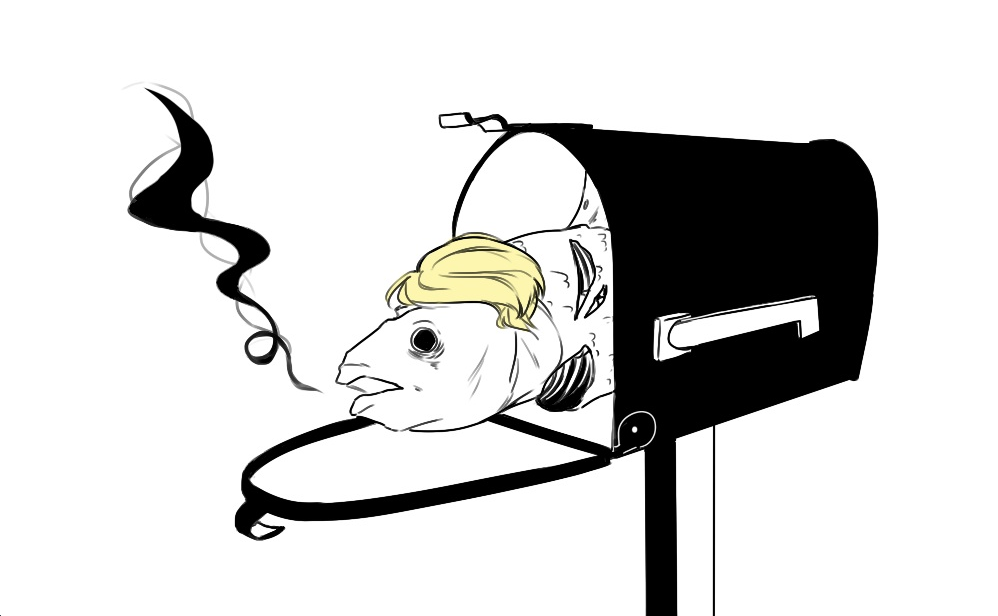Print Managing Editor Sophie Fernandes remembers the rotting fish her neighbors placed in her family’s mailbox in 2004 as a warning that her multiracial family was not welcome. Fernandes connects her personal experiences to President-Elect Donald J. Trump’s anti-immigrant rhetoric. Cartoon by Ashley Lawrence.
By SOPHIE FERNANDES – Print Managing Editor
Over a week out from President-Elect Donald J. Trump’s inauguration, Print Managing Editor Sophie Fernandes reflects on the election’s blatant racism against immigrants, which she is no stranger to.
“There were people that were cheering on the other side of New Jersey where you have large Arab populations, they were cheering as the World Trade Center came down. I know it might be not politically correct for you to talk about it, but there were people cheering as that building came down.”
“Appreciate the congrats for being right on radical Islamic terrorism, I don’t want congrats, I want toughness & vigilance. We must be smart!”
“When Mexico sends its people, they’re not sending their best. They’re bringing drugs. They’re bringing crime. They’re rapists.”
These aren’t the rantings of a lunatic, but rather quotes from America’s President-Elect.
In this election, discrimination was not hidden or whispered about. In fact, uninformed racism and Islamophobia are viewed as a legitimate belief structure, demonstrated by the success of Donald J. Trump.
This racism is nothing new to my family; we have suffered from it for years. I find myself being dismayed with the state of America, having grown up hearing stories of my dad’s own persecution for being Indian.
“When I was a child, my family and I awoke to something I’ll never forget,” my father said. “The Ku Klux Klan had planted a burning cross in our yard. We assume that the men in hoods meant to scare us because my father is Indian, and my mom is white. They thought that because she was blind, she was being taken advantage of. It never entered their mind that they were together because they were in love. The men hid in the bushes and watched as my father tried to put the flames out with a hose.”
This happened in 1978, after the Civil Rights Act, after the integration of schools, after the abolition of poll taxes and free passes for intimidation groups like the KKK.
During the Iraq War, people would ask my father why he was trying to destroy America, or if he had a bomb in his backpack.
My first experience with racism came in 2004. I still remember the rotting stench that radiated from our mailbox, caused by the dead fish our neighbors had placed there as some sort of warning that my multiracial family was not welcome.
And just three years ago, in my freshman Advanced Placement Government class, my teacher asked my race. I did not mind explaining to him that I am Indian, even though my last name sounds Hispanic. I did, however, mind his new nickname for me: “terrorist”.
Racism has not gone away, like many Americans like to pretend.
It just went underground. And today, it’s reemerging in the form of racial stereotyping and name-calling.
According to the Washington Post, there was an incident in Indiana where basketball players from a majority white school yelled “build the wall!” at their opponents who were predominantly Latino. It is disturbing to me that my generation is joking about this rhetoric that demeans immigrants, let alone adopting it.
Trump rose to power during 11 months of calling immigrants malicious names. Immigrant communities, however, have endured decades of discrimination, so for them, those words mean something.
Trump supporters may think that his rhetoric is “funny” or “honest” because he is “speaking the truth”, but for people of color these stereotypical slurs should not be taken lightly, for they are the manifestation of something rotten.
